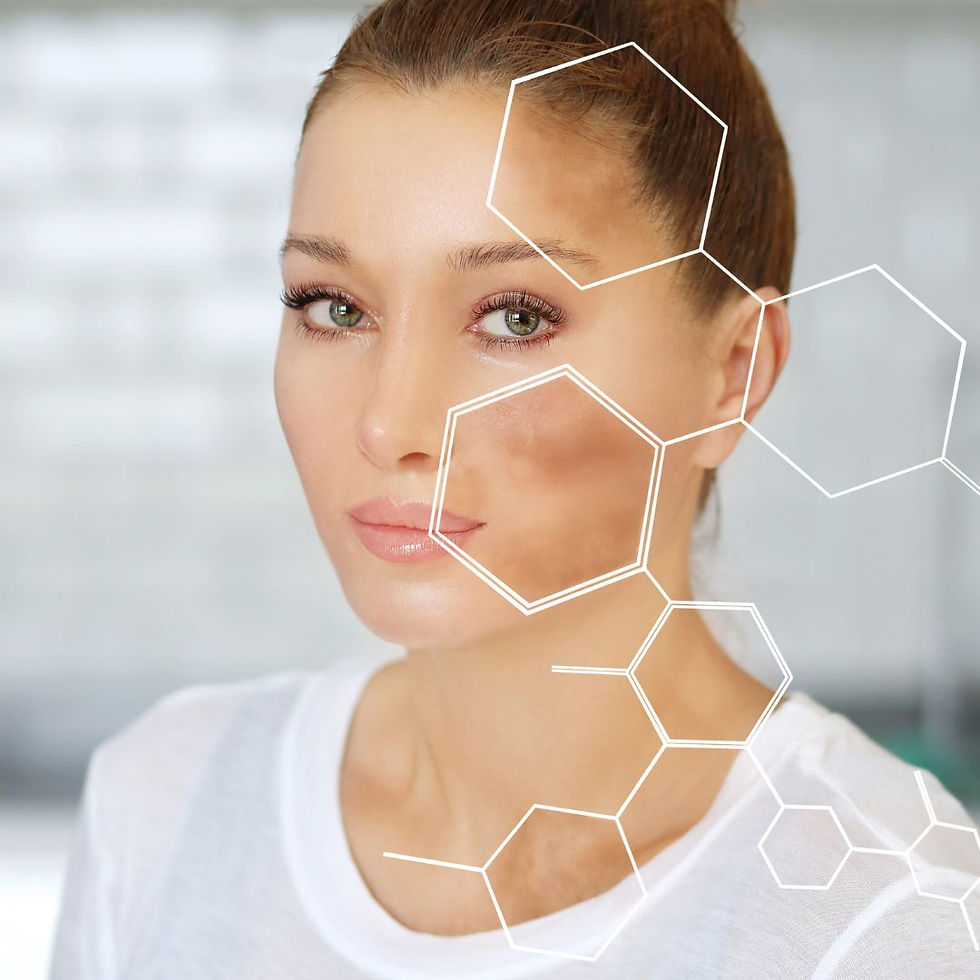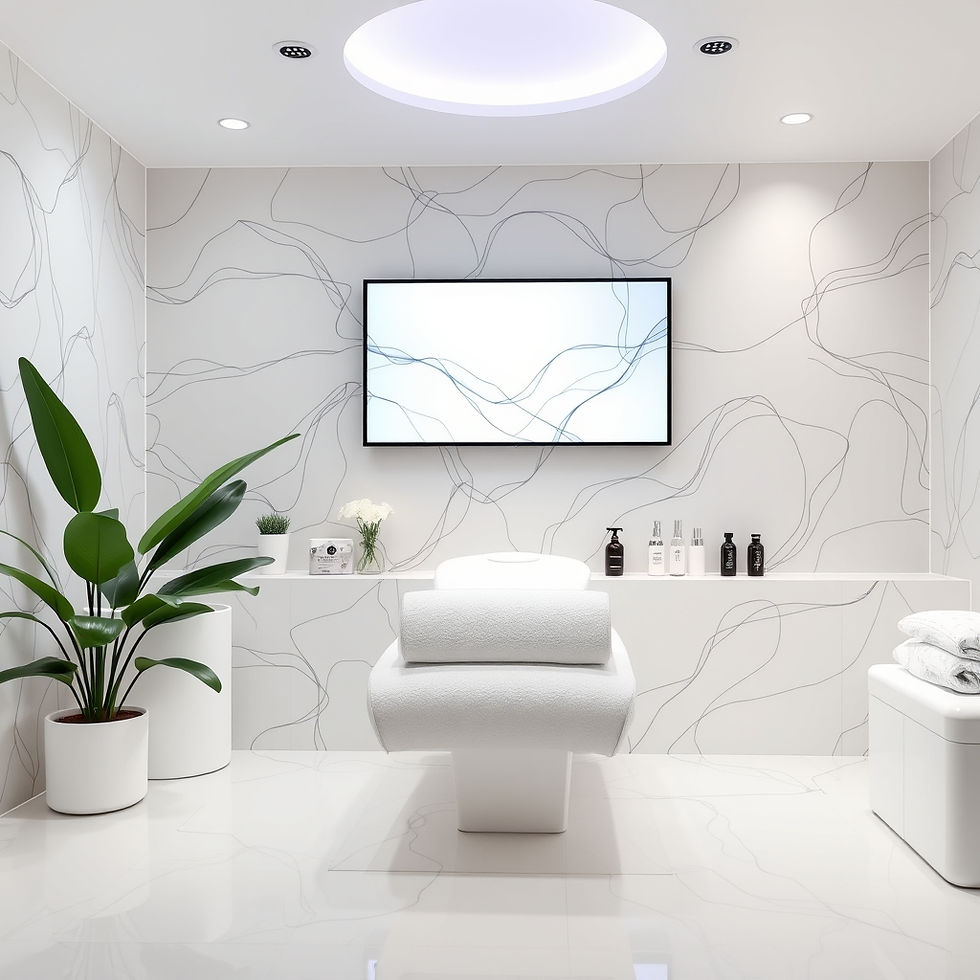Summer Hyperpigmentation Treatment Tips
- kathywalton
- Aug 2, 2022
- 2 min read
Updated: Aug 8, 2022

Have you noticed skincare patients seem to complain more about facial hyperpigmentation after the long, hot summer months? There are a number of factors which increase melanin production in the skin:
Sun exposure
Hormonal Fluctuations resulting from:
Pregnancy
Menopause
Perimenopause
3. Age
4. Skin Injuries
5. Inflammation
6. Lasers
What causes hyperpigmentation to the skin?
Hyperpigmentation is a result of the melanocyte producing excess melanin. The melanocyte is a specialized skin cell that produces the skin darkening pigment-melanin. The melanocyte resides in the lower stratum basal layer of the epidermis. When the melanocyte produces too much melanin, melanin builds up in specific areas of the outer layer of the skin leading to darkening or areas of brown patches.
What most people do not realize is that over 5 million people in the United States suffer from hyperpigmentation or Melasma. Out of these 5 million people, Fitzpatrick Skin Types 4-6 are more susceptible to hyperpigmentation!
With an increase of hyperpigmentation during summer months, it is crucial to know which skincare products are best. Here is a list of some of the most effective skincare ingredients to look for when looking to address hyperpigmentation:
Topical Retinols-exfoliate dead skin cells
Vitamin C: antioxidant that lightens dark spots
Arbutin: Lightens dark spots & helps even skin tone
Biomimetic Peptides: Decrease tyrosinase activity and melanin synthesis
Kojic Acid: Skin brightening, fades dark spots and discoloration.
Licorice Root Extract: skin brightener, anti-inflammatory
Azelaic Acid: brightens the skin, but is gentler, making it great for those with sensitive skin.
Niacinamide: can interrupt the process of cell pigmentation, thereby brightening the skin.
Inspira Skin offers the highest quality private label, medical grade skincare formulations to help address tough to treat hyperpigmentation and skin brightening solutions including:
Fruit Enzyme Cleanser: contains natural plant enzymes and antioxidants brightens the skin by exfoliating dead skin cells.
Correction Pads with TCA: powerful acids work in combination to protect against cell damage and accelerate cellular turnover to brighten skin.
Vitamin CE Serum with Ferulic Acid: Brightens skin tone and provides powerful antioxidant properties to protect the skin from oxidative stress and pollution.
Advanced Lightening Cream: Targets numerous skin imperfections, including uneven skin tone and discoloration due to aging. Powerful ingredients work to help skin look brighter.
Tinted SPF Protection 30+: Light weight, moisturizing and hydrating broad-spectrum sunscreen with SPF 30+.
Many skincare practices will treat hyperpigmentation with lasers. Laser treatments can vary in risk and severity of PIH. Pigmentation after laser treatment may decrease but not be completely avoided. Here is what you can do to reduce chances of hyperpigmentation when using a laser:
Use skin lightening creams a few weeks before laser treatments and continue use after laser treatment.
Avoid laser treatment if patient has tanned skin because tanned skin is more prone to PIH. Start treatment only after the tan has completely subsided.
Apply SPF after laser treatment. Ultraviolet light after laser treatment stimulates active melanocytes and can worsens PIH.
Explain to patients that they need to avoid excessive skin irritation after the laser hair removal. This would include harsh scrubs or exfoliations.








Comments